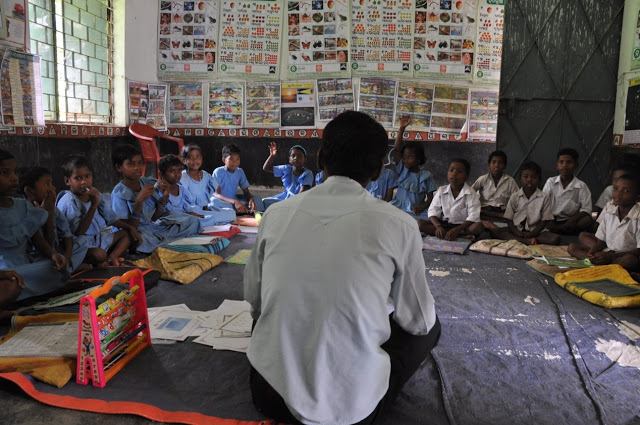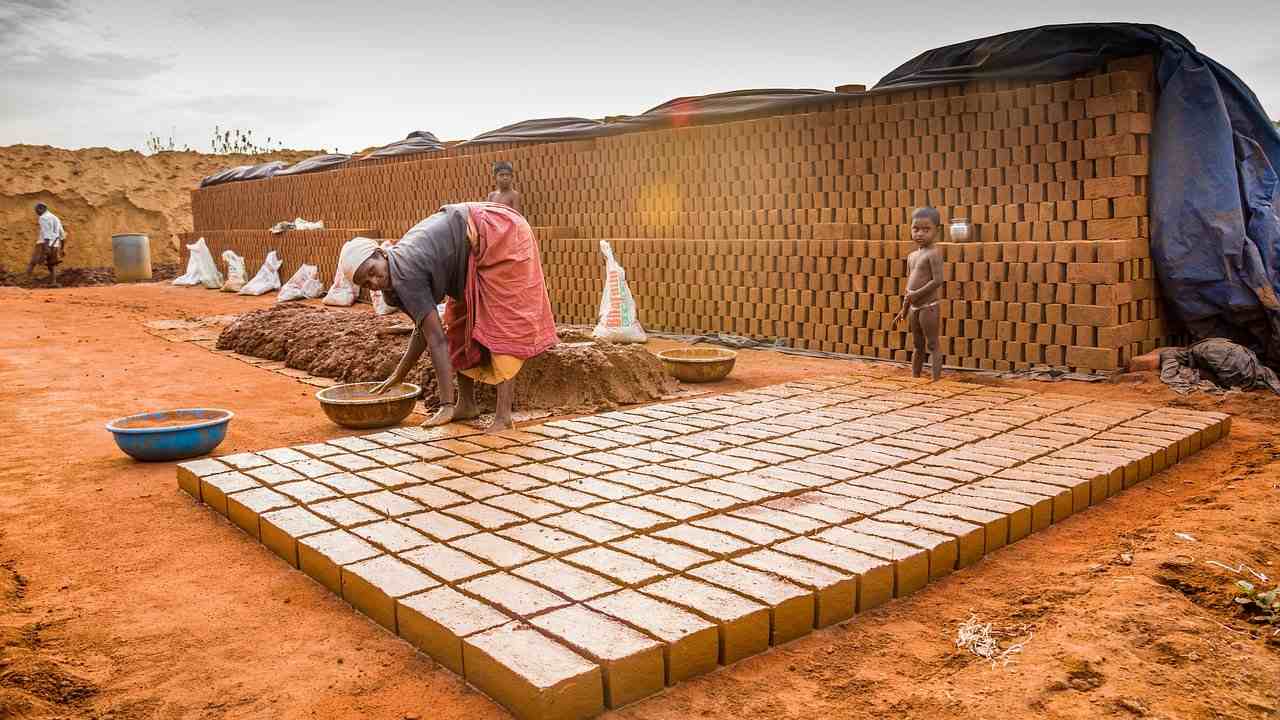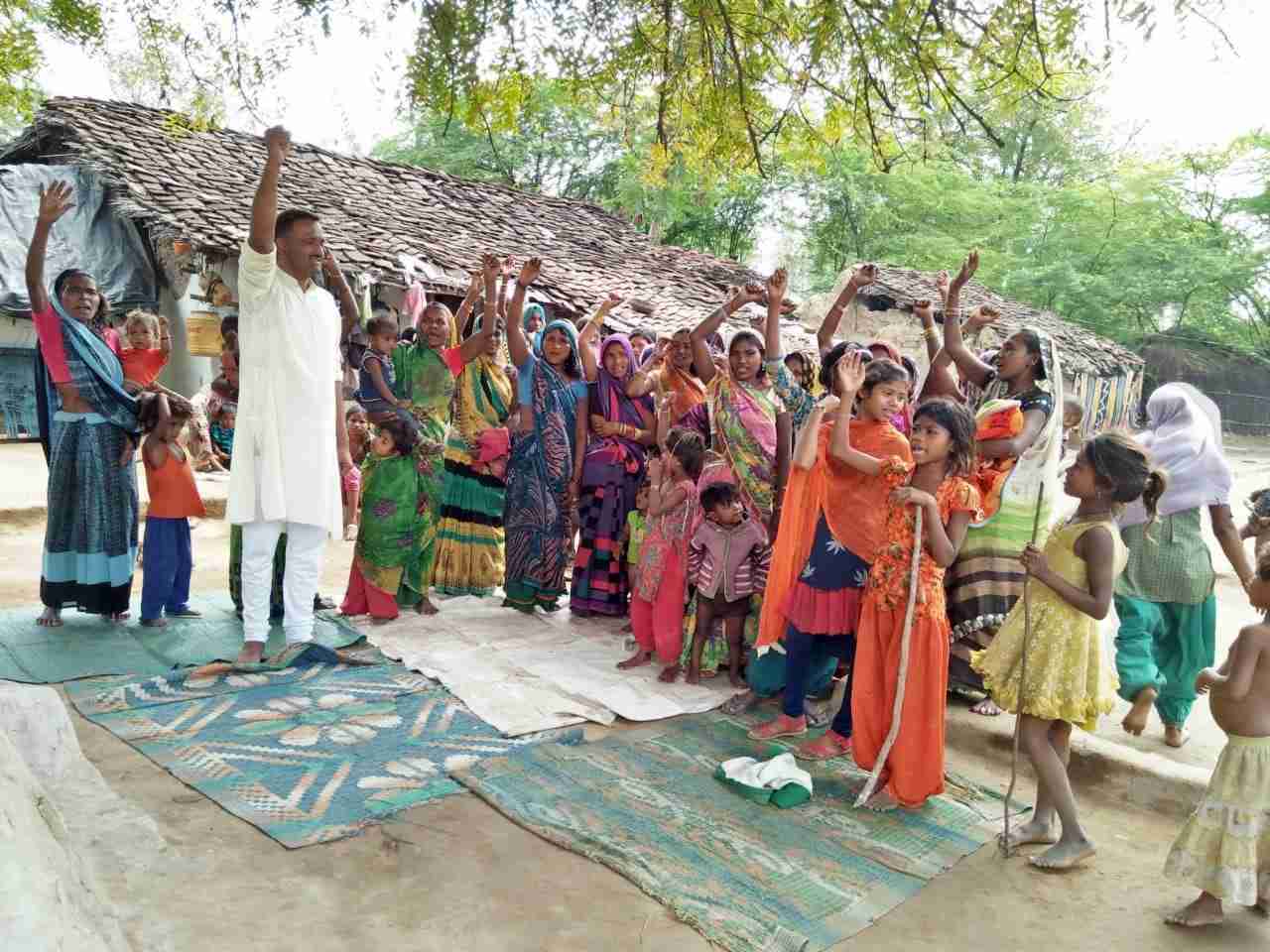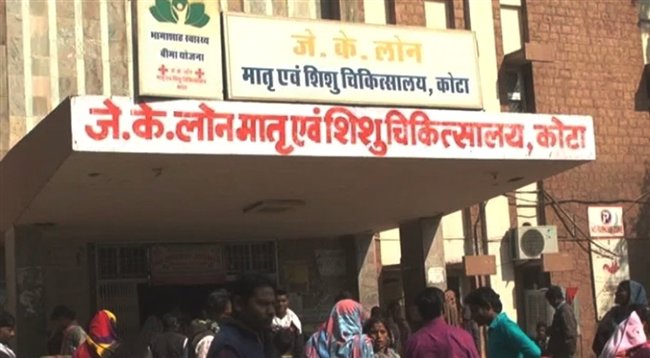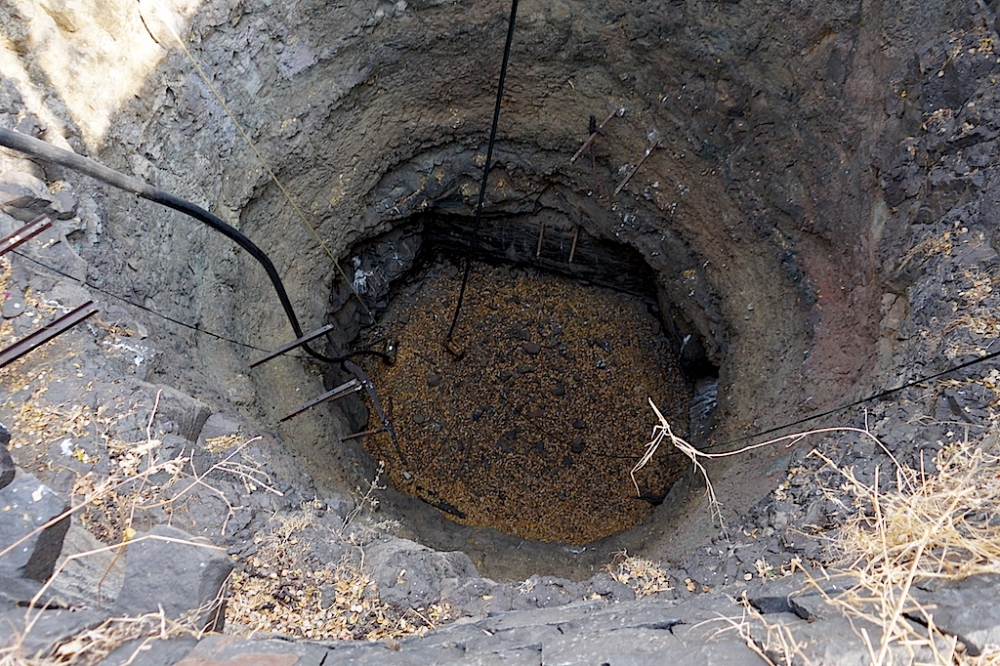In one of the classrooms I witnessed, during my visit in Barmer, the teacher was asking students whether they had milk or not, which was being provided during the short interval. Few students said that they haven’t had milk. The teacher asked them for their reasons. The students were getting nervous but hesitatingly told their reasons. The teacher was not able to understand this, as he was not able to understand the language at all. This made him angry. He shouted at the students again and again, made them to repeat it. He was still not able to understand but he wanted to make sure that all the students drank milk. So, to set an example, the teacher used the cane on them. He had to use extreme methods to send the message across because he was not able to understand their language and also not able to communicate to them in their language as well.
Lack of understanding the local language was one of the major challenges which the teachers face in many schools which I had visited. Barmer is a dark zone district in Rajasthan. In this area, there are various difficulties which a person faces such as lack of water, infrastructure development, medical facilities, etc. So, you have to understand that many teachers who work here do not even prefer to work in the area. Since they do not have any other better option, they just choose to work here with no other better choice. The teachers were telling me that when they joined the school, it was very difficult for them to communicate to the students because the teachers do not know many words which the students are able to understand. It takes time for them to learn the language and some of the teachers were telling me it had taken years for them to understand the basics of the language. This mainly becomes a challenge in the single teacher schools, which are mainly, many of the primary schools in these areas. The reason being that when there is only one teacher in the entire school, he/she has to build an effective relationship with the students so that they are able to provide help and support to the teacher when needed. But other than that, this challenge mainly affects the learning of the students.
There are various ways in which this affects the learning of the students. Firstly, the teacher would resort to the method of corporal punishment to ensure students “understand”. Since the teacher is not able to understand the language, words are not effective for building an understanding. This leaves the teacher with no other choice but to use corporal punishment techniques. This apparently ensures that a student “understands” what he/she must do and must not do in school. When corporal punishment is being used it can create an environment for the student in which he/she does not communicate with the teacher. Therefore, the student starts to reserve everything within himself/herself. This creates other issues as well which I do not want to dwell into. Second, simple as it maybe, learning happens very minimal in the classrooms. Since the students are not able to understand what the teacher is speaking in class, they simply start nodding to everything what the teacher is telling. This creates a false sense within the teacher that the students have understood everything. Consequentially. this makes the students disinterested in the subjects. Third, this can create divisions between the students in the class. In many classes, which I have witnessed, there usually are very few students who understand the language which the teacher is speaking. This creates unfair advantage for them. A setting is being created in which these few students become the “quick learners” and the others would be labelled as “slow learners” or “disinterested ones”. What happens to the “slow learners”? I shall leave this to your imagination.
Now what can be the solution to this? The main solution can be to increase the appointment of local teachers in schools. Definitely, this is easier said than done. This is primarily because Barmer has one of the lowest literacy rates in the country. According to the 2011 census, the literacy rate of Barmer is 56.53%, where the male literacy rate is 70.86% and the female literacy rate is only 40.63% (Government of Rajasthan, 2011). In this, if we look at the data on drop out rate in government schools in Barmer, the percentage of drop outs in secondary school is 51% and continuation to this, the percentage in higher secondary school is at 37.6% (Azim Premji Foundation, n.d.). Even though, the drop out rate decreases from secondary school to higher secondary school, it still is a high percentage of drop outs. This shows how the significant section of local population are not even able to complete their basic education. Then how can we expect there to be more qualified local teachers in the schools in Barmer? Honestly, this is much more complex than what it seems because there are many other factors as well such as lack of infrastructural development, casteism, etc. But still, it is important to have more qualified local teachers because they are the ones who know the local language, understand the culture and the context well. For others, who are transferred from other districts, find themselves to be in a situation of shock because of the different difficulties they face in this area. This definitely can affect the motivation levels of these teachers.
Even though, I do recommend the improvement of education which in the long run, may improve appointment of more local teachers in the district of Barmer. I still want to emphasise on the aspect that there are teachers, transferred from other districts in the state, who do a great deal for their students, classrooms and the school. But this takes time and effort. They have to be willing to get adjusted to the place, understanding the context, building relationships with different stakeholders and then striving towards the development of the school as well as community. So, these aspects are much more important, even if it is a local teacher or not. But local teachers have the benefit of building relationships much more easily because he/she knows the language, understands the context and culture as well.
Elwin Varughese is currently working as a research associate with Azim Premji University, Bengaluru.



